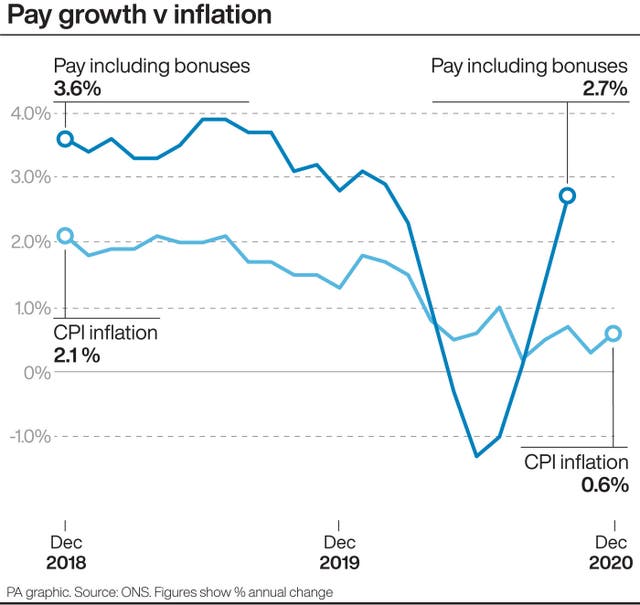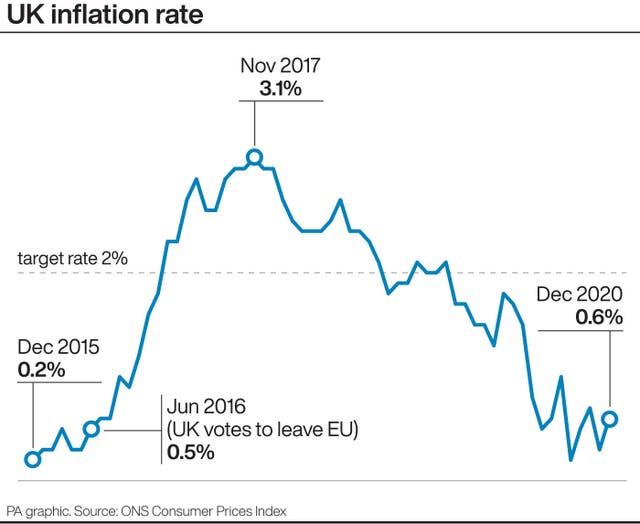Clothing and transport costs pushed up inflation in December
The Office for National Statistics said the rate of Consumer Price Index inflation increased to 0.6% in December from 0.3% in November.

UK inflation picked up pace in December after hard-hit clothing retailers held off from further steep discounts and as transport costs edged up, according to official figures.
The Office for National Statistics (ONS) said Consumer Prices Index (CPI) inflation rose to a slightly higher-than-expected 0.6% in December from 0.3% in November.
It said clothing prices rose marginally – up 0.1% – between November and December, in contrast to the usual falls seen due to Boxing Day sales, though prices still dropped on an annual basis.
Transport prices also lifted as some travel restrictions eased earlier in December and air fares rose month-on-month despite the pandemic curbing most international travel.

Jonathan Athow, deputy national statistician at the ONS, said: “Clothing prices put upward pressure on inflation in December, despite some evidence of continued discounting.
“Transport costs, including air, sea and coach fares, as well as petrol prices, rose as some travel restrictions eased during parts of the month.
“These were partially offset by falling food prices, most notably for vegetables and meat.”
Clothing and footwear firms had already slashed prices in November amid the second lockdown in England, which disrupted the usual discounting seen after Christmas.
Swathes of the high street were also forced to shut amid tightening coronavirus restrictions just before the holidays.
The ONS said the annual rate of clothing and footwear inflation fell by 1.8% against the unusually steep 3.6% decrease in November.
The figures showed another inflationary pressure came from the recreation and culture category, where the rate reached a four-month high of 2.6% due to the cost of laptops and computer software amid the shift to home working.
The cost of video games and consoles also rose on soaring demand as Britons looked to entertain themselves amid the coronavirus restrictions.

The ONS said transport cost inflation hit its highest for 18 months, at 1.9%, with petrol prices rising 1.5p over the month to 114.1p a litre, as the oil price continued to climb.
Higher alcoholic drink and tobacco prices likewise saw a CPI rise last month, with 2.2% on tobacco products due to a tax hike from mid-November.
The Retail Price Index (RPI), a separate measure of inflation, was 1.2% in December, rising from 0.9% the previous month.
The CPI, including owner-occupiers’ housing costs (CPIH) – the ONS’s preferred measure of inflation – was 0.8% last month, up from 0.6% in November.
Samuel Tombs, chief UK economist at Pantheon Macroeconomics, said he expects inflation to remain low until April, when a potential increase in the energy price cap could help push CPI up to 1.5%.
He added: “CPI inflation will also rise in the hospitality and recreation sectors in April, when VAT will return to 20% from its current 5% rate, though most businesses declined to pass on the saving to consumers and so will not automatically hike prices.”
He stressed that the risk of inflation going above the Bank of England’s 2% target “seems low” throughout 2021 and 2022.





